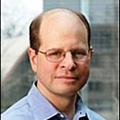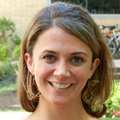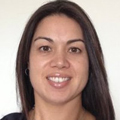Personal Mention
College of Engineering Dean Jim Garrett has announced several role changes in the college. They are:
Civil and Environmental Engineering Professor Burcu Akinci will be the next associate dean for research, effective Sept. 1. She succeeds Gary Fedder who was recently named CMU’s vice provost for research. Akinci’s primary responsibilities will be to facilitate research collaboration among the college’s faculty and with colleagues across campus, identify major research opportunities for the college, and develop and implement a college-wide strategy to address them.
 Matthew Sanfilippo was appointed the college’s chief partnership officer (CPO). His primary responsibility will be to coordinate, grow and integrate the college’s external partnerships with corporations, government agencies, foundations, donors and alumni. This is an expansion of the role he has played for the past several years.
Matthew Sanfilippo was appointed the college’s chief partnership officer (CPO). His primary responsibility will be to coordinate, grow and integrate the college’s external partnerships with corporations, government agencies, foundations, donors and alumni. This is an expansion of the role he has played for the past several years.
 Mechanical Engineering Professor Jonathan Cagan will be associate dean for strategic initiatives, effective Sept. 1. His primary responsibilities will be to develop and implement a strategy for Carnegie Mellon’s Silicon Valley campus over the next several years, oversee the implementation and update of the college’s overall strategic plan, and assist the dean in developing and implementing high-value strategic initiatives for the future. Cagan also is director of innovation and entrepreneurship for the college and program head of the Software Management program at CMU-SV.
Mechanical Engineering Professor Jonathan Cagan will be associate dean for strategic initiatives, effective Sept. 1. His primary responsibilities will be to develop and implement a strategy for Carnegie Mellon’s Silicon Valley campus over the next several years, oversee the implementation and update of the college’s overall strategic plan, and assist the dean in developing and implementing high-value strategic initiatives for the future. Cagan also is director of innovation and entrepreneurship for the college and program head of the Software Management program at CMU-SV.
 Jennifer Keating-Miller has joined the Dietrich College as its new assistant dean for educational initiatives. Previously, she served as CMU’s associate director of undergraduate research and national fellowships. In that role, she administered programs like SURG, SURF and ISURG and helped students apply for nationally competitive fellowships, such as the Churchill Scholarship and Rhodes Scholarship. Keating-Miller also worked closely with Dietrich College associate deans Joseph E. Devine and Brian Junker to create, launch and mold the college’s Honors Fellowship Program. In its second year, the program is part of the college’s Senior Honors Program and is designed to give students a head start on their thesis development. Find out more about Keating-Miller and her new position.
Jennifer Keating-Miller has joined the Dietrich College as its new assistant dean for educational initiatives. Previously, she served as CMU’s associate director of undergraduate research and national fellowships. In that role, she administered programs like SURG, SURF and ISURG and helped students apply for nationally competitive fellowships, such as the Churchill Scholarship and Rhodes Scholarship. Keating-Miller also worked closely with Dietrich College associate deans Joseph E. Devine and Brian Junker to create, launch and mold the college’s Honors Fellowship Program. In its second year, the program is part of the college’s Senior Honors Program and is designed to give students a head start on their thesis development. Find out more about Keating-Miller and her new position.
 The Simon Initiative has hired Kimberly P. Law as a learning engineer. Law joins CMU as part of the university’s efforts to better understand and develop strategies to overcome the roadblocks to using technology-enhanced learning (TEL) resources. This work and new position is supported by a two-year, $1 million grant from the Carnegie Corporation of New York, the organization’s largest award to CMU. Law, who previously served as the cyber technology coordinator and STEM bridge director at the National STEM Consortium, will lead the development of new and innovative TEL courses and support materials in statistics and computer science. She also will explore best practices and barriers to the creation and adoption to these tools. The courseware will be developed by taking advantage of Open Learning Initiative (OLI) processes and resources and will use a science and team-based approach to improve interactive higher education online courses. Find out more.
The Simon Initiative has hired Kimberly P. Law as a learning engineer. Law joins CMU as part of the university’s efforts to better understand and develop strategies to overcome the roadblocks to using technology-enhanced learning (TEL) resources. This work and new position is supported by a two-year, $1 million grant from the Carnegie Corporation of New York, the organization’s largest award to CMU. Law, who previously served as the cyber technology coordinator and STEM bridge director at the National STEM Consortium, will lead the development of new and innovative TEL courses and support materials in statistics and computer science. She also will explore best practices and barriers to the creation and adoption to these tools. The courseware will be developed by taking advantage of Open Learning Initiative (OLI) processes and resources and will use a science and team-based approach to improve interactive higher education online courses. Find out more.
 CyLab faculty member Lorrie Cranor gave a talk during the 24th USENIX Security Symposium, Aug. 12-14, in Washington, D.C., titled “Conducting Usable Security Studies: It’s Complicated.” Cranor’s talk summarized a series of studies that her lab, the CyLab Usable Privacy and Security Lab (CUPS), performed over the past decade. It’s complicated, she explained, because the subjects participating in usable security studies must be placed in risky situations. In many cases, it also is important that participants focus on a task unrelated to security and be unaware that security is the focus of the study. Find out more.
CyLab faculty member Lorrie Cranor gave a talk during the 24th USENIX Security Symposium, Aug. 12-14, in Washington, D.C., titled “Conducting Usable Security Studies: It’s Complicated.” Cranor’s talk summarized a series of studies that her lab, the CyLab Usable Privacy and Security Lab (CUPS), performed over the past decade. It’s complicated, she explained, because the subjects participating in usable security studies must be placed in risky situations. In many cases, it also is important that participants focus on a task unrelated to security and be unaware that security is the focus of the study. Find out more.
A paper by Human-Computer Interaction Institute researchers that examined how to motivate people to adopt online security measures by sharing information about how their friends use such tools received an honorable mention in the National Security Agency's third annual Best Scientific Cybersecurity Paper Competition. The paper by Sauvik Das, an HCII Ph.D. student; Adam D.I. Kramer, a Facebook researcher; and HCII faculty members Laura Dabbish and Jason I. Hong was presented at the 2014 ACM Computer and Communications Security Conference.
